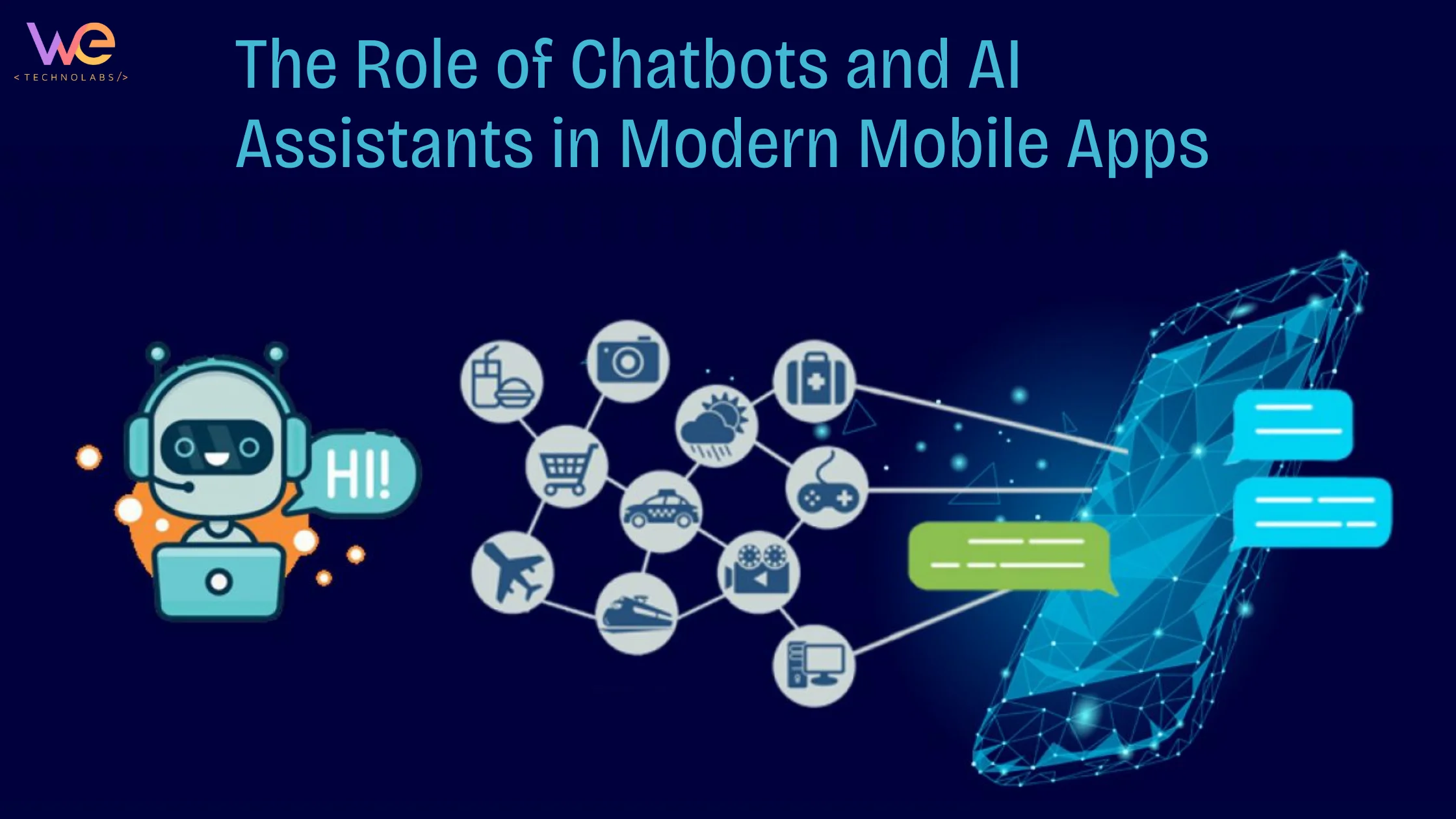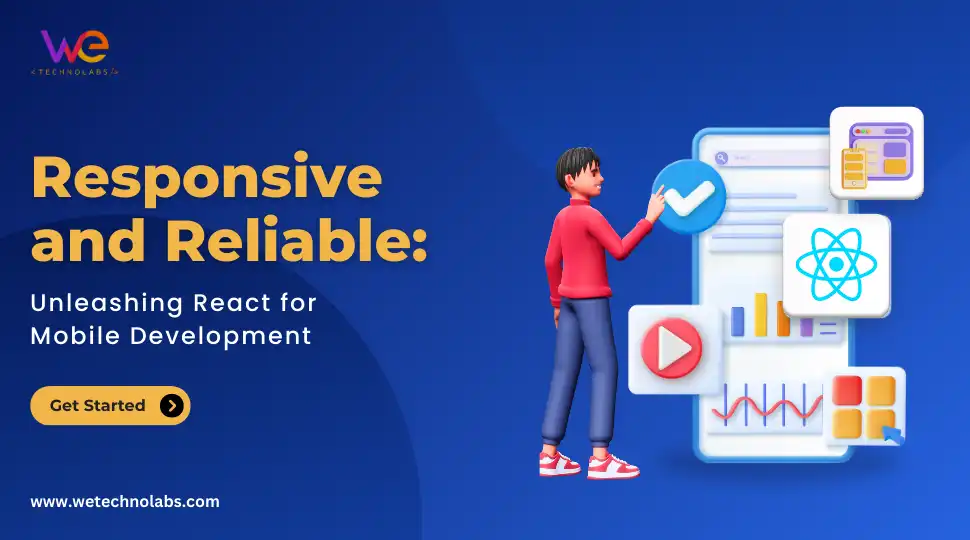The world of mobile app development is in a constant state of evolution. From the early days of simple, single-purpose applications to today’s sophisticated and multifunctional mobile apps, the industry has come a long way. One of the key drivers of this transformation is the integration of chatbots and AI (Artificial Intelligence) assistants. In this article, we will explore the role of chatbots and AI assistants in modern mobile apps, their benefits, challenges, and their place in the ever-advancing field of mobile app development.
The Evolution of Mobile App Development
To understand the role of chatbots and AI assistants in modern mobile apps, it’s important to first look at the evolution of mobile app development. Mobile apps have transitioned from simple tools to complex, user-centric platforms that cater to a wide range of needs and preferences. As user expectations have grown, so too have the demands placed on app developers to create engaging and intuitive experiences.
In the early days of mobile app development, the focus was primarily on functionality. Apps were often designed to serve a single purpose, whether it was checking the weather or playing a game. However, as the smartphone landscape expanded, so did the scope and ambition of mobile apps. Users began to expect more personalized and responsive interactions, leading to the integration of AI technologies.
Chatbots and AI Assistants: Definitions and Functionality
Chatbots and AI assistants are two types of AI-driven technologies that have become integral to the functionality of modern mobile apps. Let’s briefly define and explore how they work:
- Chatbots:
Chatbots are computer programs designed to simulate human conversation. They can engage with users through text-based or voice-based interactions. Chatbots use natural language processing (NLP) and machine learning to understand and respond to user queries and commands. They can be found in a wide range of applications, from customer support to virtual assistants. - AI Assistants:
AI assistants are more advanced AI systems that are capable of understanding context and providing personalized responses. They often have names and personalities, such as Apple’s Siri, Amazon’s Alexa, and Google Assistant. AI assistants are designed to assist users with tasks, answer questions, and provide recommendations based on user behavior and preferences.
The Benefits of Integrating Chatbots and AI Assistants
The integration of chatbots and AI assistants in mobile apps offers a multitude of benefits. Let’s explore some of the advantages:
- Enhanced User Engagement
Chatbots and AI assistants provide users with interactive and engaging experiences. They can offer information, assistance, and entertainment, keeping users within the app for longer periods. - Personalization
AI-driven technologies can analyze user data to deliver highly personalized experiences. This includes tailored content recommendations, personalized responses, and product suggestions that align with individual preferences. - Efficiency
Chatbots can automate routine tasks, such as answering common customer queries, making appointments, or processing orders. This not only saves users time but also reduces the workload on customer support and service teams. - Availability
AI assistants are available 24/7, offering round-the-clock support and information to users. This availability enhances user satisfaction and ensures that questions are answered promptly. - Data Insights
The use of AI in mobile apps allows for the collection of valuable user data. This data can be used to analyze user behavior, preferences, and pain points, enabling businesses to make data-driven decisions and refine their offerings.
Use Cases in Mobile App Development
To grasp the full extent of chatbots and AI assistants’ influence on mobile app development, it’s essential to look at real-world examples:
- Virtual Shopping Assistants
E-commerce apps have adopted chatbots to assist customers in finding products, placing orders, and answering questions. These virtual shopping assistants provide a personalized and streamlined shopping experience. - Personal Finance Apps
Finance apps use AI assistants to help users manage their finances. They can provide budgeting advice, track expenses, and even suggest investment opportunities based on a user’s financial goals. - Health and Fitness Apps
Health and fitness apps incorporate chatbots and AI assistants to provide users with workout plans, nutrition advice, and even personalized health assessments. - Language Learning Apps
Language learning apps leverage AI assistants to offer interactive language lessons and practice exercises. These apps adapt to a user’s progress, providing a customized learning experience. - Customer Support
Many mobile apps integrate chatbots to provide instant customer support. These chatbots can answer common questions, troubleshoot issues, and escalate inquiries to human agents when necessary.
These use cases demonstrate how chatbots and AI assistants have permeated various industries, enhancing user experiences and streamlining operations.
Challenges and Considerations
While the benefits of integrating chatbots and AI assistants into mobile apps are clear, there are also challenges to consider. Privacy and data security are paramount concerns, as these technologies often require access to sensitive user information. Careful development, encryption, and data protection measures are essential to address these issues.
Additionally, AI technologies require regular updates and maintenance to remain effective. It’s crucial for developers to continually refine chatbots and AI assistants to keep up with evolving user expectations and technological advancements.
The Role of Research and Development Companies
The development and advancement of chatbots and AI assistants would not be possible without the vital role of research and development (R&D) companies. These organizations are at the forefront of AI innovation, pushing the boundaries of what is possible in the field of mobile app development.
R&D companies are responsible for developing the algorithms, models, and frameworks that power AI-driven technologies. They conduct extensive research to improve the accuracy and capabilities of chatbots and AI assistants, contributing to their widespread adoption in the mobile app industry.
In addition to innovation, R&D companies play a pivotal role in ensuring the security and ethical use of AI in mobile apps. They develop best practices, security protocols, and compliance standards that guide the responsible use of AI technologies.
Trends and Future Prospects
As technology continues to evolve, the role of chatbots and AI assistants in mobile app development is set to expand further. Some emerging trends in this space include:
- Multimodal Interaction
The future will see chatbots and AI assistants integrating multiple modes of interaction, including voice, text, and visual interfaces, to provide a more versatile user experience. - Improved Natural Language Processing
Advancements in natural language processing will enable chatbots and AI assistants to understand and respond to users in a more human-like and context-aware manner. - Enhanced Privacy and Security Measures
Developers and R&D companies are working to strengthen privacy and security in AI-driven apps, addressing concerns related to data handling and user protection. - Cross-Platform Integration
Chatbots and AI assistants will become more integrated across platforms, allowing users to seamlessly transition between mobile apps and other digital environments.
Best Practices for Integration
For developers and businesses looking to integrate chatbots and AI assistants effectively, here are some best practices:
- Define clear objectives: Determine the specific goals and functionalities of the chatbot or AI assistant within your app.
- Understand your users: Tailor interactions to the preferences and expectations of your target audience.
- Regularly update and maintain: Keep the technology up to date to ensure optimal performance.
- Prioritize security: Implement robust
Conclusion
chatbots and AI assistants have become essential in modern mobile apps, delivering enhanced user engagement and personalization. Research and development companies are at the forefront of innovation, and future trends hold the promise of even more versatile AI experiences. By following best practices, developers and businesses can harness these technologies to shape the future of mobile app development.






